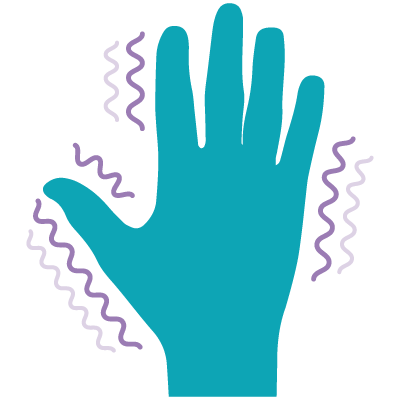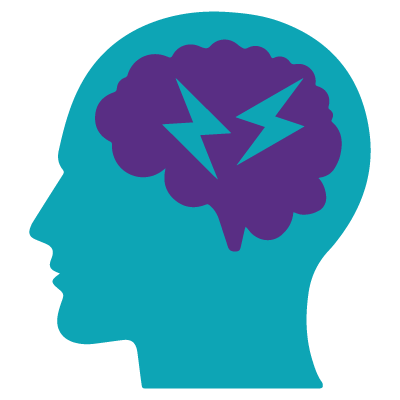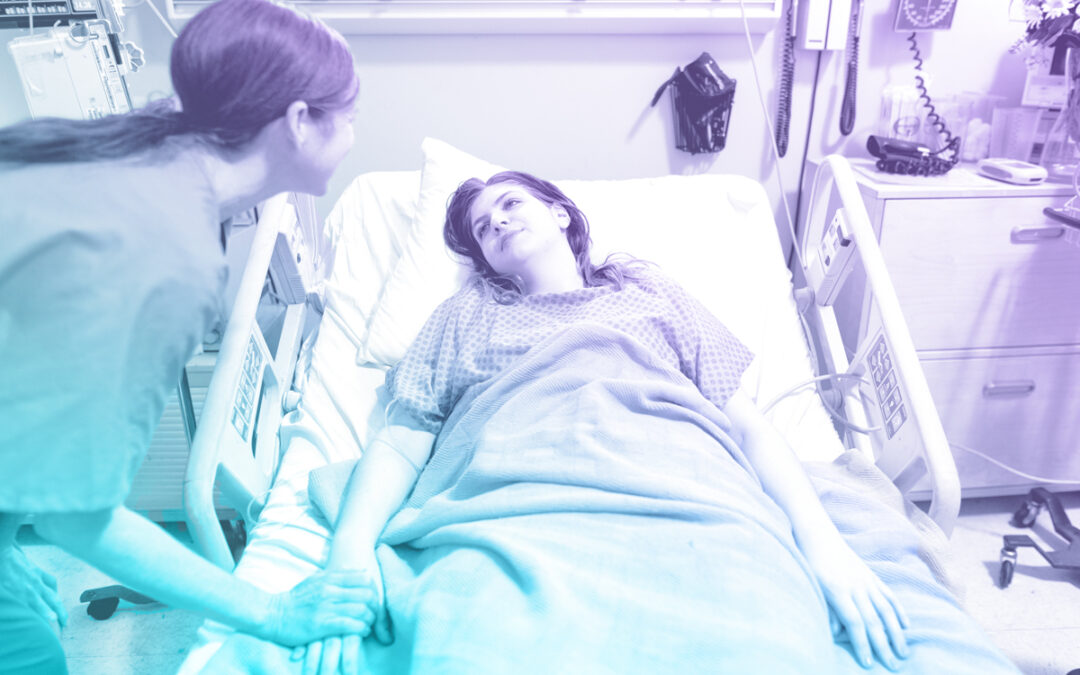How Long Do Alcohol Withdrawal Symptoms Last?
Alcohol withdrawal is a serious and complicated health issue. Depending on the years of use and severity of disease, alcohol withdrawal has mild-to-life-threatening outcomes. Over 50% of individuals with a history of alcohol abuse can experience withdrawal symptoms when they decrease or stop consumption.
Due to years of chronic abuse, people who don’t understand the seriousness of their addiction may suffer devastating consequences, such as severe autonomic system dysfunction, profound confusion, and complete cardiovascular failure. A person dealing with alcoholism needs to know the symptoms of alcohol withdrawal, how it occurs, and why it is crucial to have medical and emotional support throughout cessation.

What Is Alcohol Withdrawal Syndrome?
Alcohol withdrawal syndrome occurs when heavy drinkers considerably decrease their alcohol intake or abruptly stop drinking. The negative impact on the body for chronic abusers is significant and often dangerous. Immediate withdrawal from alcohol affects your mental well-being as much as your physical health. Anxiety and panic may set in, leaving you unable to deal with mounting health issues adequately.
It is essential to seek treatment if you detox from alcohol by choice or circumstance. Recovery is a journey that requires medical supervision and personal attention to safely bring you through the phases of alcohol detox and treatment.
What Causes Alcohol Withdrawal?
Alcohol has far-reaching effects on body systems. The consistent abuse of alcohol changes how the brain reacts in critical situations. Drinking heavily slows down the brain’s response times and interferes with normal nerve signals that transmit messages rapidly throughout the body. Eventually, your body grows used to this new state, and the central nervous system compensates with hyperarousal to make the brain function and keep you alert.
AWS changes this stasis suddenly, and while the body is crashing from alcohol deprivation, the brain initially remains in an anxious state. Withdrawal occurs as the body undergoes an intense period of disequilibrium and has a decreased ability to keep interconnected systems functioning correctly.
How Soon Do Symptoms Start?
While the timing of withdrawal symptoms varies, you may experience the first signs within a few hours of your last drink. The onset of symptoms is affected by these factors:
- History of use
- Level of consumption
- Periods of previous detox
Typically, detox takes up to five days after your last drink before symptoms subside.
How Long Do the Symptoms of Alcohol Withdrawal Last?
The timeline for alcohol withdrawal varies by individual. The detox period is defined by three stages of symptoms and how long they last.

1. Mild Stage
Lasts 6-8 Hours
This stage of withdrawal is characterized by noticeable physical changes and an increase in agitation. Symptoms often feel like a typical hangover, so individuals tend to ignore how their bodies react. People who engage in chronic alcohol abuse are usually more aware of the physical signs of withdrawal beginning to take place.
Anytime the body withdraws from alcohol, a medical emergency can arise. Therefore, going through withdrawal alone presents serious risks. During the first 6 to 8 hours, other factors can complicate your situation. If you use other substances, this could affect your physical health. Additionally, the number of substances consumed before an episode is significant to the severity of withdrawal.
Most people experience headaches, nausea, vomiting and anxiousness. However, people with long-term disease can hallucinate and have seizures at this early stage. Myriad physical issues that occur during alcohol withdrawal may lead to sudden heart failure.
Mild Stage Symptoms
- Shaking
- Anxiety
- Nausea
- Headache
- Sweating
- Body tremors
2. Moderate Stage
Lasts 12-24 Hours
In the moderate stage, initial detox effects begin to subside. However, health issues become increasingly severe. This period starts around 12 hours after drinking has ceased. It may take longer for this stage to begin, based on an individual’s history.
Moderate stage symptoms usually persist for a day or more. If you are going through intense withdrawal, your condition can gradually or rapidly worsen until your situation becomes a dire medical crisis.
Moderate Stage Symptoms
- Respiration issues
- Hypertension
- Irregular heartbeat
- Profuse sweating
- Irritability
- Fever
- Confusion
3. Severe Stage
Lasts 48-72 Hours
Health decline is apparent in the severe stage of alcohol withdrawal. After 48 to 72 hours, a person in this stage needs medical care. The detrimental effects of rapid detoxification often lead to delirium tremens.
Also known as the DTs, this is the most serious manifestation of alcohol withdrawal syndrome. You experience sympathetic nervous system problems, profound disorientation and psychomotor issues. At this point in withdrawal, you are in a health crisis.
After 72 hours, symptoms begin to decrease if you are not undergoing a medical crisis. You could still experience symptoms over the next few days or longer, depending on the seriousness of the withdrawal episode.
Severe Stage Symptoms
- Profound confusion
- Hallucination (visual and auditory)
- Cardiovascular failure
- Body systems breakdown
- Severe body tremors
- Insomnia
- Seizures
- Fever
Without treatment by a healthcare professional, these symptoms may progress quickly and can be become life-threatening in extreme cases.
Alcohol Withdrawal Symptoms
Alcohol withdrawal symptoms usually occur within a predictable timeline after your last drink, but not everyone will develop the same symptoms. The most common withdrawal symptoms include:
- Irritability
- Agitation
- Anxiety
- Increased heart rate
- High blood pressure
These symptoms vary in severity depending on the individual and the level of alcohol regularly consumed before the withdrawal period. While less common, you may experience these more dangerous symptoms during alcohol withdrawal:

Tremors or excessive shaking:
Tremors are an involuntary muscle contraction leading to shaking movements in parts of the body including the arms, head, torso and legs. Tremors usually begin within 10 hours of your last drink and peak at 24 to 48 hours. Tremors are often accompanied by symptoms including increased blood pressure, rapid breathing, nausea, sweating and rapid pulse rate.

Alcohol hallucinosis:
While rare, alcohol hallucinosis is a serious complication that is characterized by auditory hallucinations that occur after stopping heavy alcohol consumption. It is common for individuals to see moving objects during an episode. Other individuals may see objects that appear to be falling coins or moving insects. This complication usually begins within a day of the last time you consumed alcohol.

Seizures:
Seizures may occur from six hours to 48 hours after the last time you consumed alcohol, and it is not uncommon for seizures to be severe and to last for several hours. The most dangerous seizures typically occur 24 hours after your last drink.
What Is Delirium Tremens?
Medical professionals estimate that 1 out of every 20 people will experience a severe form of alcohol withdrawal called delirium tremens. Delirium tremens is most common in individuals who have consumed a large amount of alcohol for more than 10 years. When this syndrome occurs, the brain is not able to adjust to the sudden absence of alcohol.
Delirium tremens creates a state of confusion and can lead to dangerous shifts in circulation, breathing and temperature control. Other possible symptoms associated with this syndrome include a reduced amount of blood flow to the brain, disorientation, loss of consciousness, soaking sweats and sleep disturbances.
Delirium tremens is a very serious condition and if you or someone you know is experiencing this form of alcohol withdrawal, seek medical help as soon as possible.
Alcohol Withdrawal Diagnosis
Alcohol withdrawal is simple to self-diagnose if you experience many of the typical symptoms. While there is no specific test that your doctor can perform to diagnose alcohol withdrawal, you may want to seek the help of a medical professional if you are not sure if you are experiencing withdrawal symptoms or if your symptoms are severe.
If you experience withdrawal symptoms from consuming alcohol, you have likely consumed enough alcohol to cause significant damage to your health. After your symptoms subside, you may want to visit your doctor to see if your alcohol consumption has caused damage to your liver, heart, nerves, gastrointestinal organs or blood cell counts.
If you are like most people, you may be hesitant to confess your habitual drinking to your doctor. It is important to be straightforward with your doctor regarding your behaviors so your withdrawal symptoms and any residual health problems can be properly addressed.
Prognosis
After withdrawal is complete, you must not begin consuming alcohol again. Entering an inpatient or outpatient alcohol treatment program can help improve your chances of staying sober. It is estimated that only 20% of alcoholics can stop drinking alcohol permanently without the help of a treatment program such as Alcoholics Anonymous. Of those who regularly attend AA meetings, 44% of those who abstain from alcohol for a year have a good likelihood of remaining sober for at least another year.
On average, an alcoholic who does not remain sober can expect to have a decreased life span and may develop many serious health problems including cirrhosis.
What Is Post-Acute Withdrawal Syndrome?
Post-acute withdrawal is the period after detoxification occurs, but symptoms are still present. The severity and length of alcohol abuse determine how long this stage persists. PAWs may last a few weeks to a year. These are common symptoms:
- Mood swings
- Low energy
- Anxiety
- Sleep disorders
- Dizziness
- Psychomotor issues
- Mental health issues
While PAWs gradually subsides, individuals often relapse in this stage due to frustration with the process or the desire to alleviate the symptoms.
Is It Necessary To Seek Treatment for Withdrawal?
AWS presents health and relapse problems for people with alcohol addiction. Withdrawal and relapse become a vicious cycle if you do not seek treatment. Chronic alcohol abusers frequently need in-patient treatment to safely manage the physical and emotional effects of years of abuse.
Some people can manage their addiction with outpatient treatment and the stable support system it provides. In all cases, it is essential to have a medical assessment of your condition as you go through detox. It is best if you don’t try to handle alcohol detox on your own and put your well-being in jeopardy.
What Is Alcohol Use Disorder?
Alcohol Use Disorder is a prevalent problem in the U.S. A recent report shows that 14.5 million Americans ages 12 years and older are affected by AUD. Of this group, 7.2% received treatment for AUD issues. Consistent alcohol use leads to chronic conditions.
There are many impacts on individuals, families and society as substance abuse issues continue to grow. Recovery programs help people make different choices for their lives. Getting clean requires getting the support you need to achieve and maintain sobriety. If you are worried about your alcohol use, get an assessment of your condition and learn about your options for recovery that can save your life and give you a brighter future.
How Do I Choose the Right Recovery Program?
The right recovery program for you is a deeply personal choice. You want a program that considers your individual needs and provides the best options to meet your treatment goals and objectives. Take time to speak with a treatment provider to learn how invested they are in your wellness journey.
A holistic approach focuses on all aspects of your well-being as you work toward lasting sobriety. Don’t hesitate to ask questions so you get the quality of care and follow-up you deserve.
Get Help With Sobriety
At Clean Recovery Centers, we know the definition of clean is more than being free of substances. Individuals in recovery need to confront the underlying issues of alcoholism and learn how to get their lives on a new and sustainable track.
This journey involves developing a lifestyle that doesn’t require alcohol as a coping mechanism. We have a team that is dedicated to treating you as a whole person: physically, emotionally, spiritually and mentally. We provide a spectrum of addiction treatment services to support your new life goals and give you the tools to get clean, live clean and stay clean. Call us at 888-330-2532 today to learn about our unique treatment program.
Sources:
- https://www.ncbi.nlm.nih.gov/books/NBK482134/
- https://www.aafp.org/afp/2004/0315/p1443.html
- https://www.sciencedaily.com/releases/2012/09/120902143143.htm
- https://www.samhsa.gov/find-help/recovery
- https://www.ncbi.nlm.nih.gov/pmc/articles/PMC6084325/
- https://www.sciencedirect.com/topics/neuroscience/delirium-tremens
- https://www.health.harvard.edu/a_to_z/alcohol-withdrawal-a-to-z
- https://www.niaaa.nih.gov/alcohols-effects-health/alcohol-topics/alcohol-facts-and-statistics


